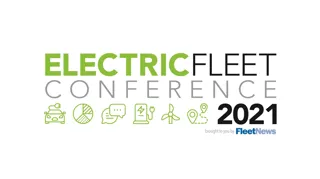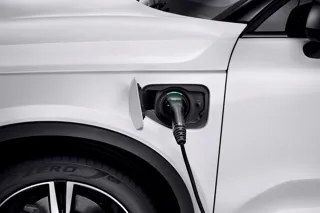The Association of Fleet Professionals (AFP) is calling on the Government to publish benefit-in-kind (BIK) company car tax tables up to 2030, in next month’s Budget, to help fleet electric vehicle (EV) adoption strategies.
Currently, BIK tax tables are available up to 2024-25, which allows fleet operators to effectively plan one replacement cycle ahead.
However, AFP chair, Paul Hollick, he would also like to see company car tax tables through to 2029-30 created “as soon as possible” to look two cycles into the future.
“From a practical standpoint, this will mean that we can produce comprehensive EV adoption strategies that take us right through to the moment when petrol and diesel cars will no longer be available, tackling financial and operation concerns,” he said.
Innovations designed to solve the issue of kerbside charging should also be included in the next month’s Budget, says the AFP
Around 40% of potential EV users live in properties without drives and providing them with some form of domestic charging is essential if the 2030 electrification target is to be met.
Hollick said: “There are some interesting ideas being pursued in this area, most notably around using street lighting as charging points, but there appears to be no overall strategy of which we are aware and it is a problem that needs solving.
“The Government has done some excellent work on electrification so far and we believe they should build on this by taking some ownership of this problem. For example, they could offer support to some of the start-ups working in this area.”
The Department for Transport (DfT) has announced today (Tuesday, February 2) a further £20 million in funding to boost the number of on-street electric vehicle (EV) charge points.
The AFP is also keen to see the Government do more to encourage take up of mobility services by employers and their staff in the wake of the pandemic.
“This is a moment when changes in working practices prompted by coronavirus have changed habitual transport use,” explained Hollick. “Many people are walking and cycling and it would be good to see this encouraged to continue into the future.
“For example, in the Netherlands, there are tax breaks available for those who cycle or walk to work and allowances in France covering ‘sustainable mobility’ solutions.* It would be interesting to see something similar adopted here in the Budget.”
In France, up to €400 per year per employee of defined ‘sustainable mobility’ costs are exempt from income tax and social security contributions. This exemption may not be combined with specific flat-rate deductions for business expenses.
Hear Hollick discuss these issues and much more alongside a panel of experts at last week’s Fleet News at Ten webinar.
The AFP was formed in March, 2021, from the merging of the Association of Car Fleet Operators (ACFO) and the Institute of Car Fleet Management (ICFM).






















Login to comment
Comments
No comments have been made yet.